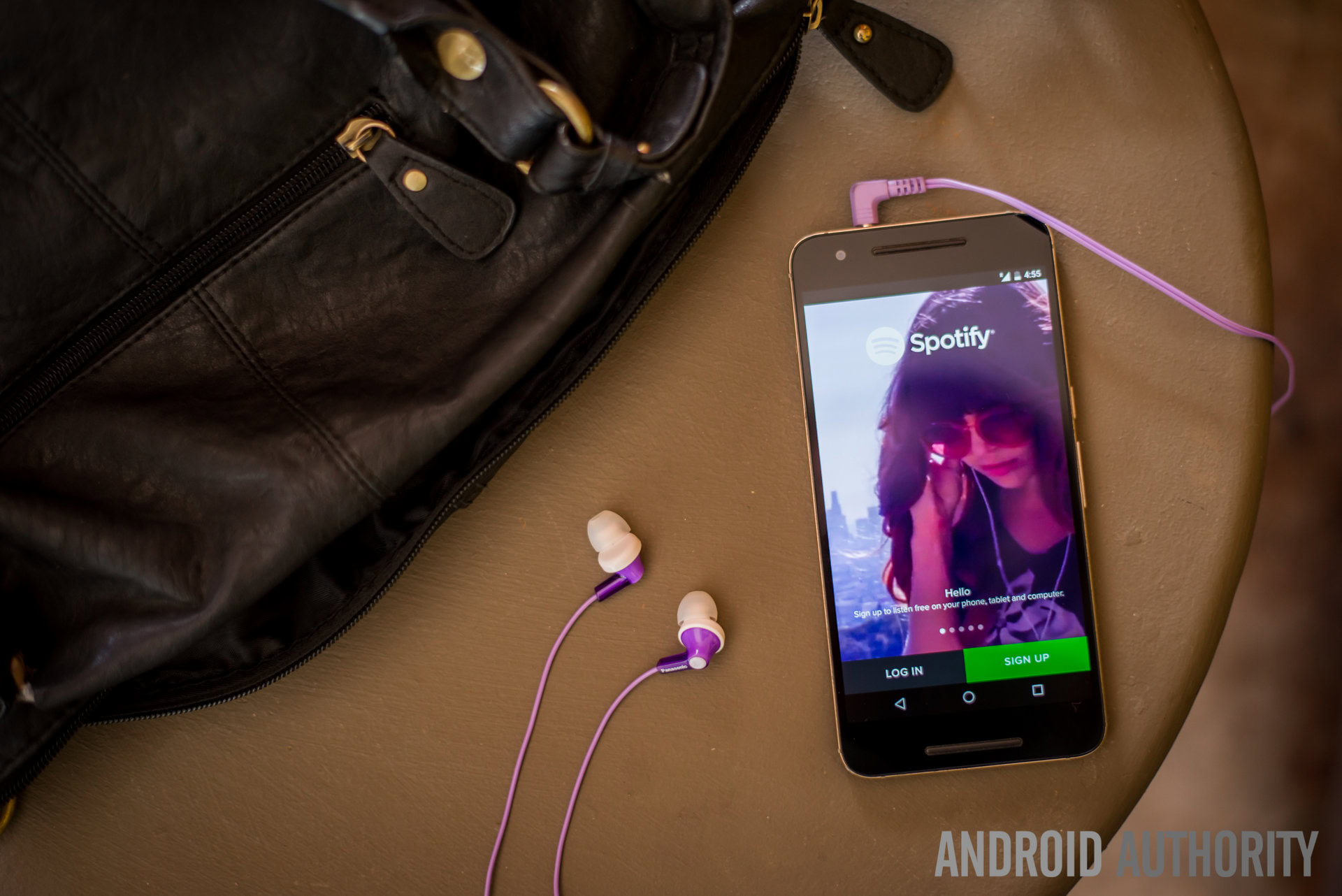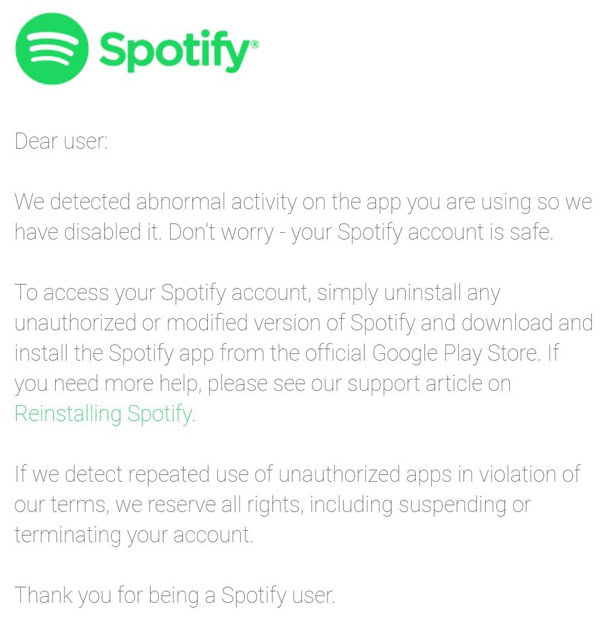Affiliate links on Android Authority may earn us a commission. Learn more.
With public shares on the horizon, Spotify starts to crack down on piracy
March 6, 2018

- Spotify users are receiving emails from the company about “abnormal activity” and encouraging them to download the official Spotify app.
- This is a clear indication that Spotify is beginning to crack down on members who use third-party apps to get Spotify premium features for free.
- With Spotify soon selling shares of the company on the open market, it must abandon its conflicting views on internet piracy and crack down on TOS violations.
Some Spotify users are reportedly receiving emails from the company about “abnormal activity” detected on their accounts. While the email doesn’t use the words “piracy,” “theft,” or “stealing,” it’s hard not to connect the dots: Spotify is cracking down on members who use modified apps to get premium Spotify features for free.
Starting a Spotify account is easy: download the app, give the company your email, pick a password, and you’re listening to all the music you can handle. However, there are a few notable limitations. You can only listen on shuffle, meaning you can’t select which song you specifically want to hear, and your listening experience will be interrupted by ads every so often.
To remove these limitations, you need to pay for a premium Spotify account, currently set at $9.99 per month for individuals or $14.99 per month for a family account.
Or you could just install any one of the illegally modified apps online that let you listen to whatever you want ad-free without paying a dime (no, we won’t be linking to them in this article).
There are more than 159 million Spotify users around the world, and according to numbers published by the company in December, about 71 million of those members pay for a premium service. That leaves about 88 million members who may or may not be freeloading using a modified app.
These modified apps have existed almost as long as Spotify itself, but this is the first time the company has officially started to crack down on users themselves. Earlier this month, Spotify ordered a takedown of one of the more popular piracy apps on Github, a request with which Github complied.
It can’t be a coincidence that the piracy Spotify has been fine to look away from for years is all of a sudden a priority right before it’s about to start selling shares in Spotify stock on the open market. By going public, Spotify is going to have to consistently raise revenue to appease stockholders; it will be hard to do that if there are millions of users getting the service for free.

One of the lead developers of Spotify’s software is Ludvig Strigeus, whose original claim to fame was the creation of uTorrent. For those of you who aren’t familiar with internet piracy, uTorrent is an extremely popular BitTorrent client that is a favorite way for internet pirates to download illegal torrents of copyrighted material.
With an integral member of the Spotify team rooted in internet piracy, it’s easy to see why the company might have been loath to crack down on piracy of its own software. But the company is going public, and that means the gloves are coming off.

According to TorrentFreak, some users are reporting after getting the warning email that their accounts no longer work. Other users say they see no change in their account status. To avoid repercussions on your Spotify account, you should uninstall any third-party Spotify apps and then install the official app from the Google Play Store. By signing in with your account on that app, you can be assured that you will be using Spotify within the limits of its terms of service.
Thank you for being part of our community. Read our Comment Policy before posting.